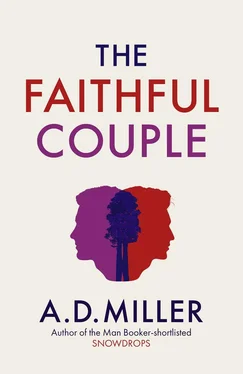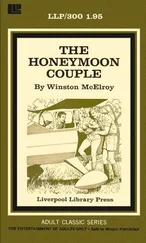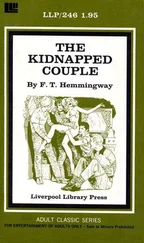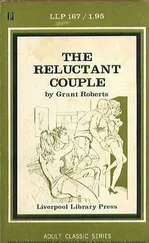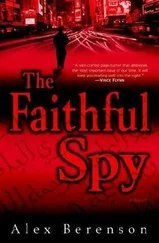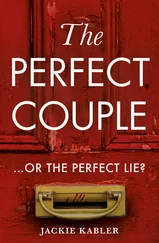Neil stood still until the van moved. The driver glanced at him as he pulled away, and Neil half-expected a finger or an insult, but the man only smiled.
It was him.
The thought occurred to Neil that he could run off. Adam hadn’t seen him; he was wearing his sunglasses but seemed to be looking down at his shoes. Neil chased the thought away. This apparition was what he had hoped for the previous week, though not with much faith, when he sent Claire his long-shot email.
Neil smiled — a freakish, Blairish sort of grin, it must have been — but Adam still hadn’t looked up. Should he thank him? Make a joke, tell one of their lies, ask after Claire? Maybe he shouldn’t mention Claire. She had evidently passed on his message, but he didn’t know how things stood between them. Their kids: Adam might have another one by now, for all Neil knew. He had a child — he, Neil, was a father, a fact of which, astoundingly, Adam was still ignorant. He worried whether he should repeat his apology, or, on the contrary, should never mention that day and the sofa again.
They had been apart for four years. It was eighteen years since Yosemite. After she gave him her scrap of paper that morning Neil had said ‘Thanks’, as if she were a sales assistant handing him his change. That was all.
He had to pause in the middle of the road, perched on a white dividing dash like a shipwrecked sailor on flotsam, while high-spec four-by-fours eddied behind and in front of him. It was while he was crossing the second lane, when he was no more than ten metres from the doorway, that Adam looked up and saw him.
Adam had stood for the first half-hour. Standing was better for his back, and it had seemed to him more fitting to be upright when or if Neil arrived. To be eye to eye (or nearly). When he came to look for it he had found the building easily. There was a row of them, richly anonymous Edwardian mansion blocks, red-brick with white detailing, bay-windowed, blinds drawn, all of them called Something Court. But only this one had black-and-white chequered tiling in the entrance, and filigreed ironwork around the ground-floor windows, both of which Adam recognised. For a few minutes he patrolled the pavement outside, in a little circuit that took him twenty metres past the door in both directions. Then he worried there was a chance, a small chance, that Neil’s entry or exit might coincide with one of his turns, like a POW blindsiding a guard in an old war film. He squatted on the marble step, trying to smile harmlessly at residents who left or arrived, exactly as he had imagined he might do on that night four years before, now with the opposite purpose.
Harry had nudged him into it that morning. The children overheard them discussing Neil’s email over breakfast; Harry remembered him, and asked, and they explained what had happened in drastically periphrastic terms. An argument; adults had them too; very sad.
Harry had shrugged and said, ‘I get it, you defriended him.’ Adam had realised that he hadn’t, and wouldn’t, even if he never saw Neil again, despite what they had done to each other and together. That wasn’t how he was wired.
He knew he had to come in person. No more desiccated electronic messages, nor the eerie semi-presence of the phone, both of which conveyed only words and left out half of what mattered. No more screens or handsets or intermediaries. He would open with Sam. Anything else would be bad manners. Everything else would wait.
Adam doubted the location first. He was confident that he had the correct building, but realised, belatedly, that he had no idea whether Neil still lived there. By now he might have moved to Kensington, or Primrose Hill, or New York, or Zug. Or he might be visiting one of his plutocratic clients on a yacht or at their schloss. Or he might indeed be living here, and in London this evening, but be preoccupied with some trans-time zone arbitrage gambit or wining-and-dining marathon. Adam might end up waiting there all night.
He wouldn’t wait all night. He would give it till seven-thirty, seven forty-five at the outside, then head for Marylebone Station and home. Neil had another hour, Adam decided. An hour or that was it.
Only after the practical questions did his mind reach the emotional risks and pitfalls. He walked himself through it. Assume he was in the right place; Neil came; they spoke, perhaps embraced; Neil invited him in; they were both sorry and glad. But equally it could go a frostier way, all unprocessed bitterness and hoarded recrimination, or, worse (a possibility Adam nauseously considered only too late), it might be sullen, awkward, nothing to say and silently obvious that there could be no going back, therefore no way they could go on, and at the end they would trade a few terminal niceties, like schoolmates who bump into each other in the street and are obliged to pretend that they were once close. They would say goodbye and never see each other again, which might afterwards be more painful, less meaningful and memorable, than if he hadn’t come at all.
Adam remembered a family pet, an old half-blind spaniel named Ajax, whom his mother had resolved to put down but kept alive, for a few extra days, until Adam came home from boarding school at Easter. He was fourteen or fifteen, keen to affect a macho indifference but not feeling it. Ajax had been Adam’s dog, mainly, before he went away, and on the ride from the station he envisaged a heartrending, slobbery farewell. But when he came into the house and went to the basket, called the dog’s name and patted him, inhaling the faecal aroma of canine decay, Ajax hadn’t known him.
That could happen. That could easily happen.
Adam looked out into the parade of legs that were scissoring past him. Trousered legs, naked legs, bow, obese and arthritic legs. It was a child’s perspective, the world below the waist, and he felt like a child, out of his depth and alone, boredom and excitement alternating as at a zoo or a funfair. Two or three times he thought the legs were Neil’s — long and lean, the shape of the knee cap and fibula visible in the stride — and he looked up, and they weren’t. Strangers.
With half an hour to go, primitive superstition advised him to stop looking, to focus on the floor instead, or else, like Father Christmas, Neil would never come. He remembered the sunglasses in his pocket and put them on, for luck.
His ankle continued to jiggle but his mind strayed. The spelling primers he was meant to order; the broadband prices he had undertaken to compare; the appointments with the dentist he was supposed to book: the multiplying duties of online fatherhood. A pair of brogues and plausible legs intruded into the upper periphery of his vision, standing in the road in front of him. He raised his eyes, more wearily than in hope, and it was Neil.
Adam didn’t manage to get up in time. The traffic parted and Neil was eight, then five metres away. By the time he remembered what he had intended to say, Neil was hovering in front of him, his crotch at Adam’s eye level. He opened his mouth to deliver his lines — I’m so sorry about Sam, Neil, we’re both so sorry — but closed it again before anything came out.
Neil looked down at the top of Adam’s head: the swirl of his hair was still thick, still lush, now with a weft of grey amid the gold. He took in the companionable body on which, alarmingly yet consolingly, he could read his own ageing. The familiar, irrelevant shell of his friend. The notion entered his head that if he lifted a knee sharply, he would break Adam’s nose. He shooed the renegade thought away.
He was about to speak — Thank you, Adam. I’m sorry, I’m really sorry — when the door of his building opened and an old woman edged through it. Neil recognised her: fourth floor, Russian. ‘Evening,’ he said, so nervous of swallowing his voice that it sounded too loud, almost deranged. The babushka pushed between them and left them alone.
Читать дальше
